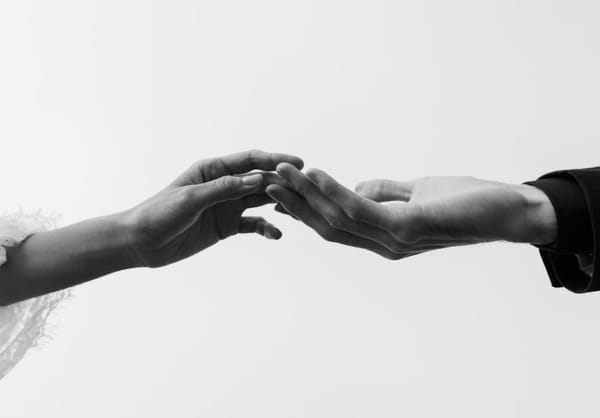Good Manners Indiscriminately
Our good manners become an integral part of our personality only when indiscriminately expressed with kindness, respect, and consideration for everyone

Our good manners become an integral part of our personality only when indiscriminately expressed with kindness, respect, and consideration for everyone
Having good manners means considering not only the feelings of others but also the special circumstances that apply to them in any situation, whether they are present or not, before saying or doing anything. We may safely assume that people with discretion have good manners in general. For example, it takes innate discretion and sensitivity to know that a rude remark or a reckless joke at the expense of a specific category of people in the presence of someone who shares that characteristic will most likely insult or hurt their feelings - and, therefore, refrain from speaking. So, sensitivity and discretion are essential when we talk about good manners.
Being concerned with not hurting the other person and respecting their condition, needs, or even desire are also both good manners. Giving priority to others, such as opening the door for them to pass before you, is very kind and indicates that you are a person with genuinely good manners.
Kindness and politeness call for treating people as you would like to be treated.
Being indiscriminately polite to everyone, not because they are who they are, but because you are a gracious person, this, too, is good manners.
Being well-mannered entails having respect and compassion for others because you are a person with self-respect and empathy.
As a child, my mantra was "politeness costs nothing and earns you everything" It still is and will always be, but I now understand the psychological reasons why this is so. Today, we often say that your good manners open doors that even the best education cannot. The explanation for this is that individuals who are treated kindly, that is, who enjoy and, in a way, benefit from your respect, sensitivity, and grace, subconsciously perceive you in a positive light and have a favourable attitude toward you. You can expect to receive this favour in a variety of ways if you are constantly well-mannered.
The respect and kindness we show to people make them feel good about themselves, and (led by our example) inspires them to bring out the best in themselves, even if they aren't the easiest-going or kindest of people.
No other favourable impression will endure when eclipsed by the bad impact our lack of discretion and kindness has on others.
Good manners should not be 'a la carte', depending on the situation, people, or occasion. At home or at work, alone or with our family, or in any other situation,
it is significant to constantly behave politely because only then do our good manners become part of our identity, and, the more it is so, the less selectively we demonstrate them.
That is to say, our good manners become an integral part of our personality if indiscriminately expressed with genuine kindness, and respect for everyone.
It is worth being courteous in all our interactions and relationships with people. This way, we leave behind us a good impression on them. No other favourable impression will endure when eclipsed by the bad impact our lack of discretion and kindness has on others.
With so much chatter about etiquette these days, especially on social media (and I'm referring specifically to the meaningless, shallow clichés), let's not lose sight of the big picture. And the essence of it is that our society doesn't really need someone who knows until what hour they "can" have a cappuccino (or else... what!) or how we should "elegantly" eat a croissant.
What society needs today is the compassion of its people; it needs young people who will give up their seat to an elderly person or a pregnant woman not because they have to, but because they want to, out of kindness and respect. Our culture needs people who will not hold back a kind word or a compliment, not out of obligation, but because it feels nice to give and make others feel good.
Of course, there will always be those who are unconcerned not just about whether their words or actions hurt others' feelings, but also about the negative impression they make on others with their indiscreet or disrespectful attitude. There is nothing we can do for them but hope that our benevolence will have a favourable impact on them. And we should not allow their impoliteness to upset us or put our excellent manners in jeopardy.
Being patient and tolerant of others, especially the rude ones is a characteristic of someone with good manners and benevolence. It is polite to give people time and space to be themselves, and to listen not only to their words but also to what is veiled behind them or their bad behaviour. Overlooking rudeness and indiscretion is a good manners statement.
Our good manners become an integral part of our personality only when indiscriminately expressed with kindness, respect, and consideration for everyone
Lastly, it’s worth mentioning the effect of civility on ourselves. Good manners are not simply pleasant and beneficial to others. They also give the well-mannered person confidence, assurance and self-control, which enhance their self-confidence. The chances of success in formal or informal human relationships and interactions, whether social or professional, rise when one has great self-confidence and grace.




